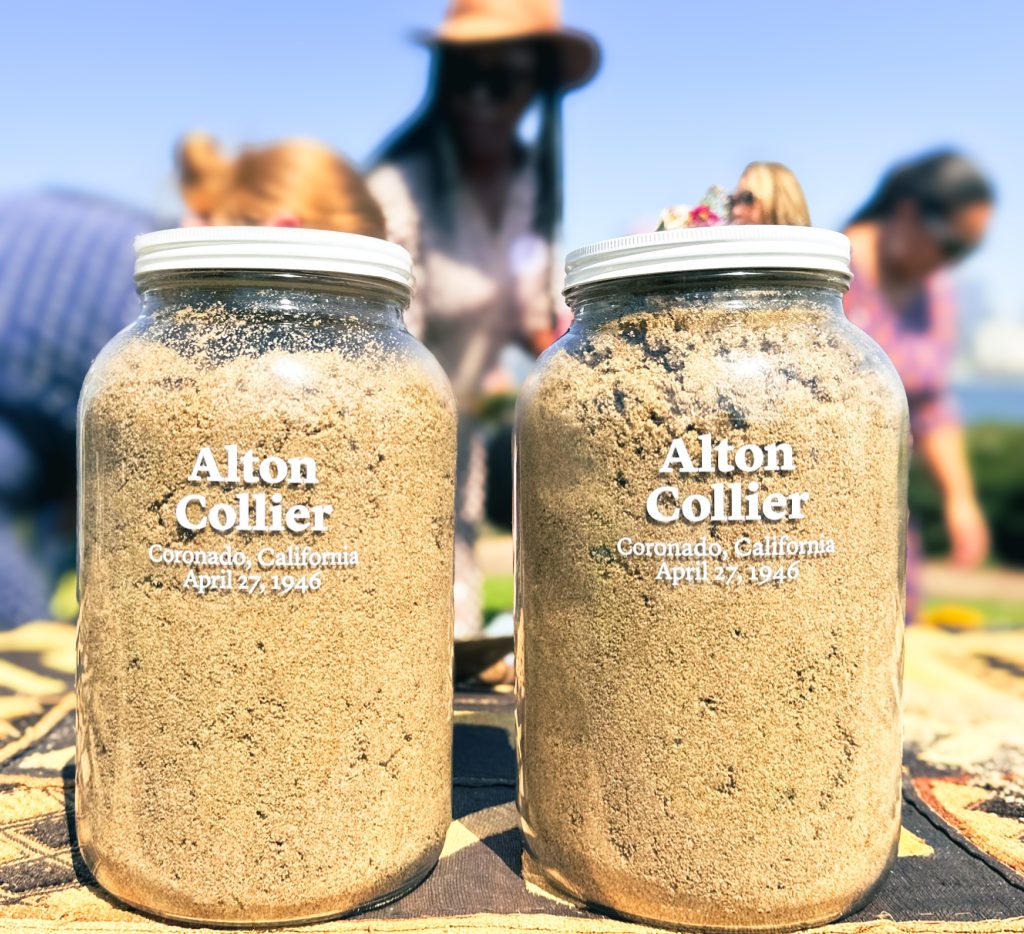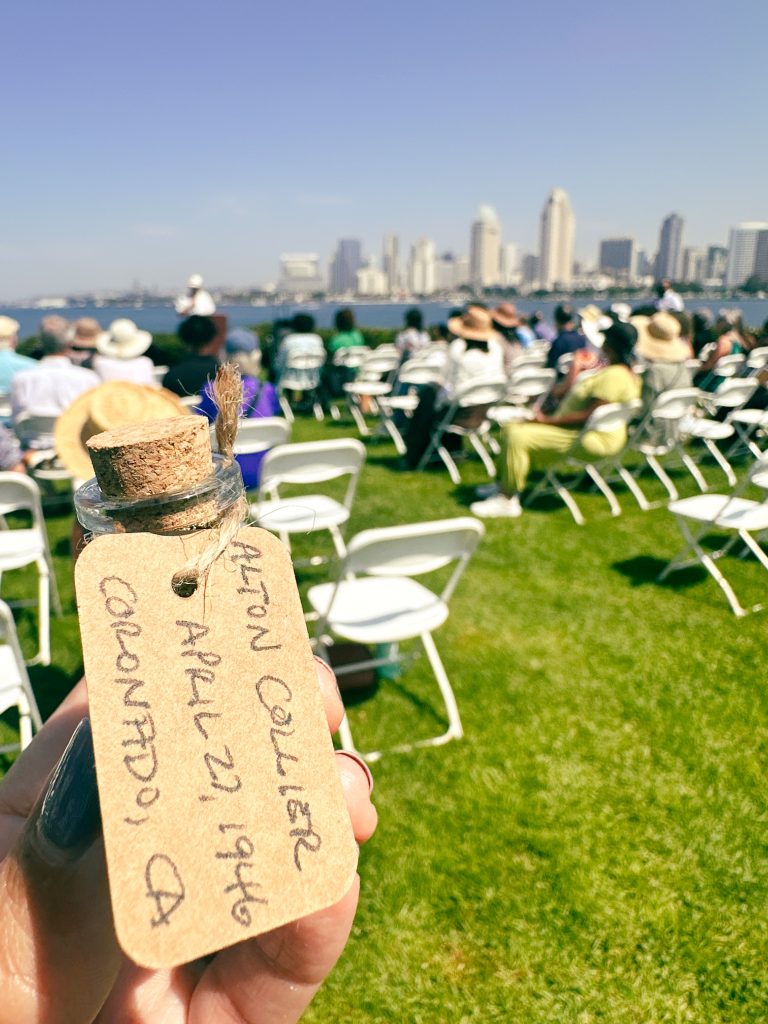
The year was 1946. Alton Collier, a 26-year-old Black man living on Alameda Boulevard, was supposed to take his wife out dancing. But he never made it home. He was attacked by two Navy sailors aboard the Coronado ferry, pushed overboard and left to drown, according to the Equal Justice Initiative, a national civil rights organization.
Almost 80 years later, more than 50 community members gathered at Centennial Park, just steps from the old Ferry Landing, to remember Collier and honor his memory as a victim of racial lynching. His nephew, Larry Collier Hall, who traveled to Coronado from Oregon, says he was honored to be a part of the ceremony.
“I heard stories about my uncle, but we never knew the real story,” said Hall. “And now, it’s like we’re finally getting justice. We’re finally getting the truth.”
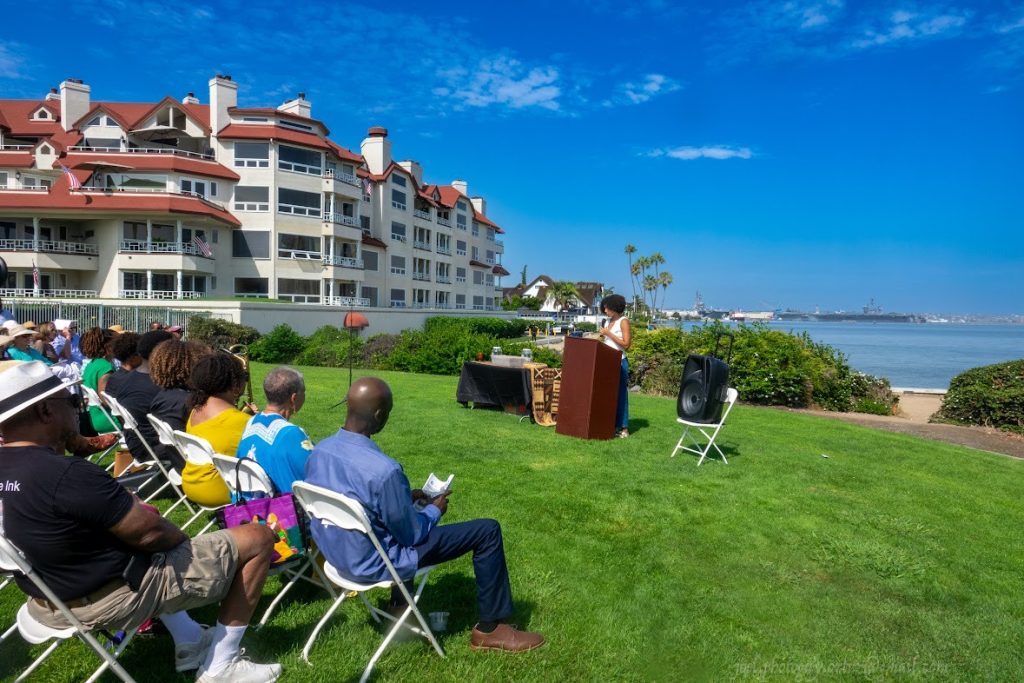
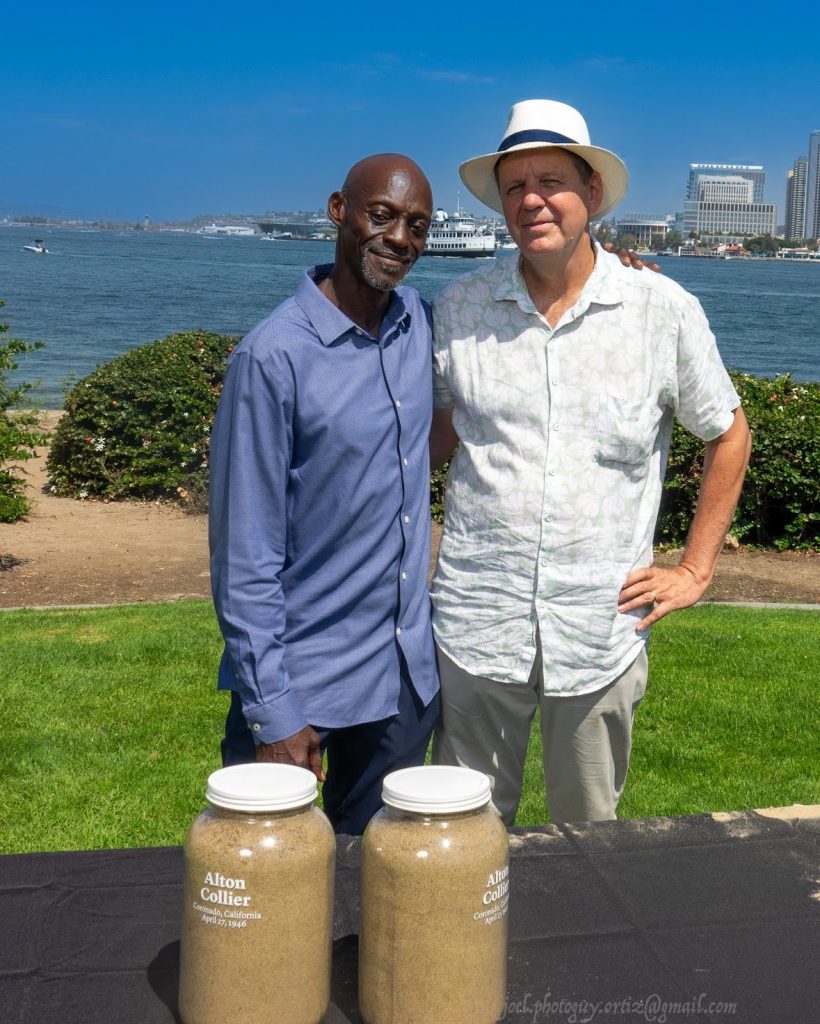
The ceremony is the work of the Coronado Community Remembrance Coalition, a group of San Diego and Coronado residents with deep ties to the community who wanted to correct the false narrative surrounding Collier’s death.
Local newspapers, at the time, claimed it was Collier who initiated the attack against the two Navy sailors, slashing one with a pocketknife and jumping off ferry, drowning in the San Diego Bay. The authorities called it a suicide.
But local historian Kevin Ashley used court documents, clippings from Black-owned newspapers and historical accounts to piece together a very different version of the death. Now, the Equal Justice Initiative (EJI) has officially recognized Alton Collier as a racial terror lynching victim.
“Unlike the majority of lynching victims in the United States, Alton Collier did not die by falling from a tree with a rope around his neck, but was rather tossed overboard from a ferryboat into the dark waters of San Diego Bay,” said Ashley in his account of the death.
Jason Sevier, a member of the Coronado Community Remembrance Coalition who works for the City of Coronado, said it’s important for the community to know the truth about Collier’s death. Unfortunately, most racial killings go unacknowledged; only 1% of lynchings after 1900 have resulted in a criminal conviction, according to the EJI.
“A lot information is covered up, or just swept under the rug. But it’s still there,” said Sevier. “That’s the sad part. But the good part is finding out the truth and honoring that person and sharing the story for the community.”
For Claudia Ludlow, a coalition member who works as the general manager for the Glorietta Bay Inn, it’s all about family. She is part of one of island’s founding Black families, with Coronado roots going back to 1919.
“It’s great to have something like this and recognize it,” said Ludlow. “It’s humbling, and it’s humbling for the city. At the end of the day, if my grandfather or my father were here, they would be excited to see something like this.”
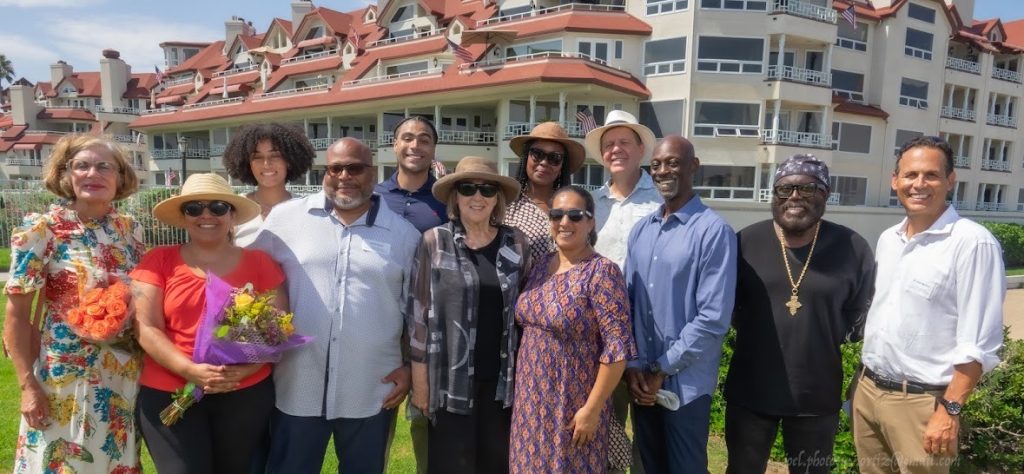
Ashley says when he was reading about Collier’s so-called suicide, things just didn’t add up.
First of all, he learned that Collier was an upstanding member of society, living with his wife and working at the Hotel del Coronado. Court documents describe him as having asthma, wearing glasses and having a mild-mannered temperament. His wife told authorities that Collier didn’t drink, had never been in a fight in his life and did not own or carry a pocketknife.
“This was not some random, criminal-minded dude who was looking for trouble on the ferry,” said Ashley. “This was one of our own.”
And when he started examining the Black-owned newspapers, they gave a very different account of his death. Collier was said to be heckled and kicked by the white sailors. Then, according to the accounts, he retreated to another part of the boat but the sailors followed, growing in number. They struck him with a reef hook before he fell or was pushed overboard, crying for help. He didn’t know how to swim.
“Why would this guy who doesn’t know how to swim, just jump off the ferry, to his death?” asked Ashley.

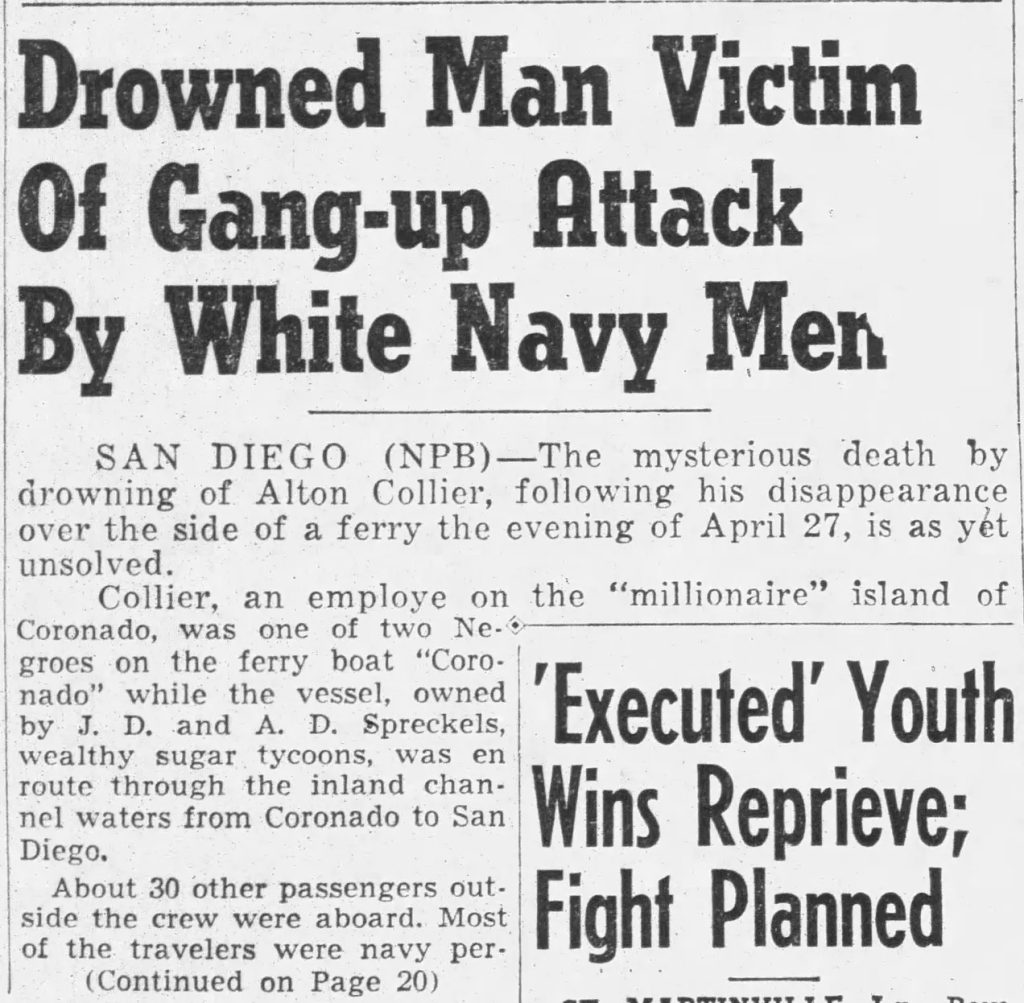
Apparently, the ferry operators deployed a life raft, but then carried on with journey across the Bay. Collier’s body washed ashore several days later.
The coalition was formed earlier this year to honor, remember, and recognize the life and tragic death of Collier. It also serves to acknowledge the impact of the coverup and how it affected his family and the greater Black community of San Diego, according to Vicki Stone, a member of the coalition and curator of collections with the Coronado Historical Association.
A week ago, at low tide, members of the coalition dug up buckets of sand where the old Ferry Landing used to stand. The sand represents the place where Collier likely took his last steps on earth. County supervisor Monica Montgomery Steppe said the ceremony could help the community confront historical injustices of the past.
“His life was cut short in an act of racial violence that has left an indelible scar on the community,” Steppe said at the ceremony. “And the fact that Alton’s death was falsely reported as a suicide to conceal the truth of his murder, it represents our current fight must continue to ensure that Alton’s truthful story be told.”

Guests of the ceremony were invited to approach a table and use small shovels to fill two large jars with sand, labeled with Collier’s name and the date of his death. One of the jars will be sent to the Legacy Museum in Montgomery, Alabama and put on display with more than 800 other jars of soil, each commemorating a victim of racial lynching. The other will be put on display at the San Diego History Center, according to the coalition.
It’s a process that’s been repeated at lynching sites across the country. Collier is the third victim (thus far) recognized in California by the EJI, out of more than 4,400 lynchings nationwide.
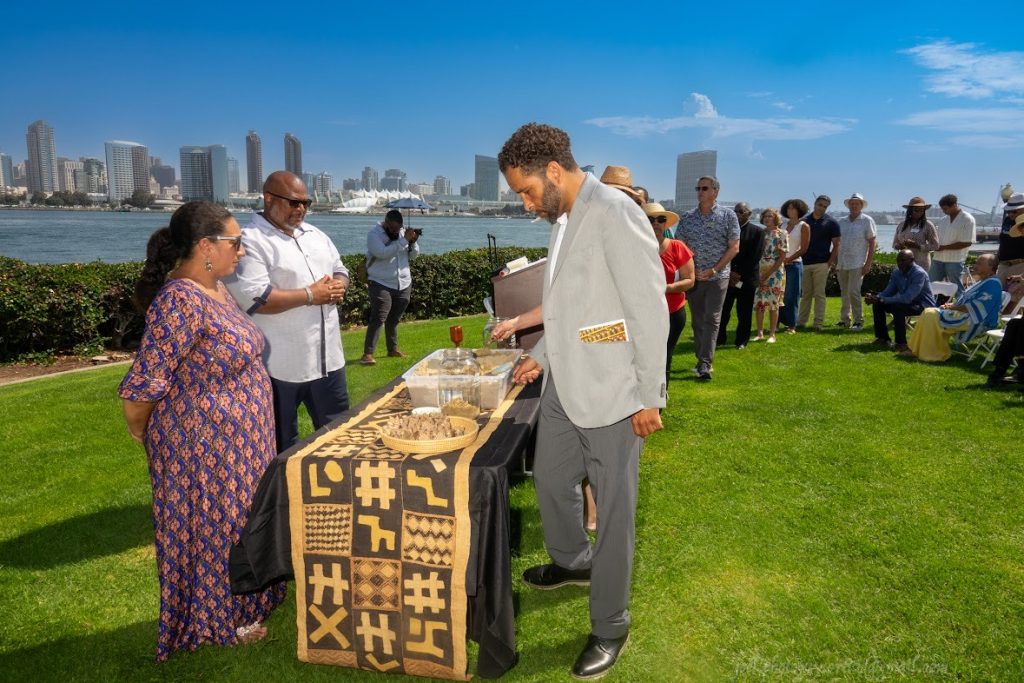
“Today you have come together in a powerful way,” said Brandon McRae, staff member with the EJI. “You join a growing number of communities that are reckoning with difficult histories. You are embracing the process of truth and justice, truth and reconciliation, and truth and repair.”
According to Ashley, Collier’s wife knew his death wasn’t a suicide. She launched a wrongful death lawsuit against the ferry company but the case was dismissed. A week later, the ferry company sold for $5.5 million.
Neither the City of San Diego or Coronado would investigate the matter further, as they called the San Diego Bay a “no man’s land,” existing under no official jurisdiction.
According to Ashley, Collier’s life cut short for one simple reason: the color of his skin. It’s just one of many such deaths that have torn apart promising young families across the nation.
“The Colliers were the future,” said Ashley.
But most importantly, his death illustrates that Jim Crow didn’t just exist in the South; it has a legacy right here, in Coronado. Ashley hopes that the ceremony will unearth a buried injustice and begin to make things right. After all, the people from the same town who did not come to Collier’s defense, are coming to his defense now.
Ludlow says she’s grateful to be part of the remembrance ceremony. Sharing the truth about Collier’s death could be one small step in the right direction, to a place where racial violence is truly a thing of the past.
“It’s hard to say how much farther we have to go,” said Ludlow. “One day we’ll get there, and maybe we won’t, but it’s these little moments that will get us there.”




